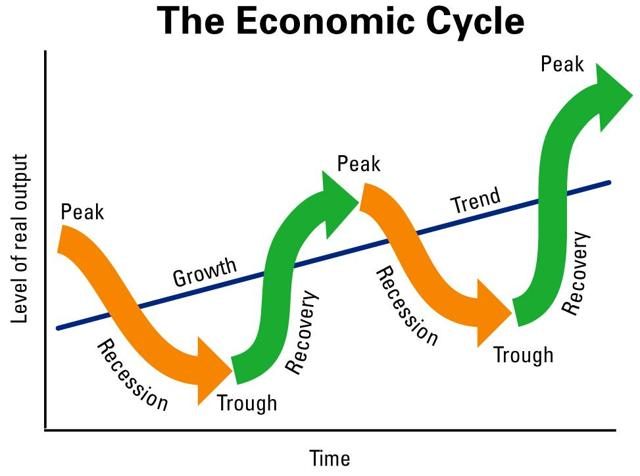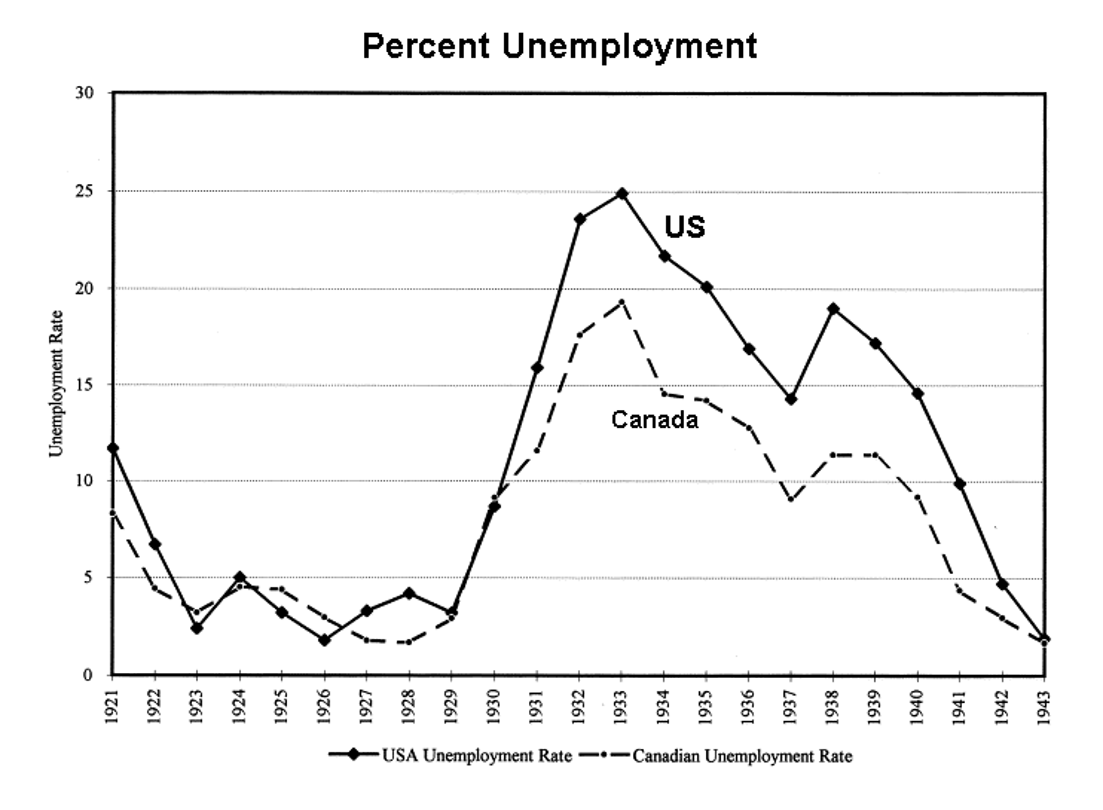When referring to economic downturns, the words “depression” and “recession” are frequently used synonymously. However, in terms of intensity and length, there are notable distinctions between the two. We will look at what a recession is, how it varies from depression, and what causes it.
What is a recession?
An economic downturn that lasts for at least two consecutive quarters, or six months is referred to as a recession. Recession is characterized by a halt in economic expansion, a decline in consumer spending and company investment, and an increase in unemployment.
The business cycle, which alternates between periods of expansion and contraction, is thought to include recessions on occasion. A reduction in consumer confidence, a drop in investment expenditure, and a drop in government spending are just a few of the things that frequently trigger recessions.
More to read: How did Russia-Ukraine war affect corn stocks?
A decline in exports, an increase in interest rates, and a decline in productivity are further variables that might cause a recession. The economy can suffer greatly from recessions, which can result in widespread job losses, lower consumer spending, and decreased firm earnings.

Economic cycle, source: seekingalpha.com
Governments frequently employ measures intended to stimulate the economy in response to recessions, including decreasing interest rates, increasing government spending, and enacting tax reductions.
What is a depression?
A depression, on the other hand, is a more serious and protracted period of economic deterioration. A considerable decline in economic activity, large unemployment rates, and pervasive poverty are the hallmarks of depression.
Depressions are uncommon, occurring only sporadically. The Great Depression, which lasted from 1929 to 1939 and had a big influence on the world economy, is the most well-known example of a depression.
Also interesting: What are derivatives?
Various reasons, such as a financial crisis, a drop in consumer confidence, and a downturn in investment spending, frequently contribute to depression. The 1929 stock market crash, which resulted in several bank failures and a decline in consumer spending, served as the impetus for the Great Depression.

Unemployment during great depression chart, source: blogspot
While depressions are significantly more uncommon and severe than recessions, both are regular components of the business cycle. Governments frequently employ economic stimulus measures in response to depressions, including higher expenditure, job-creation initiatives, and public works initiatives.
Recent recessions
The world economy has gone through various recessions recently. Some brought on by the 2008 Global Financial Crisis, the Eurozone crisis of 2010–2014, and the 2020 COVID-19 pandemic. These recessions varied in their origins and how they affected the world economy.
Several factors, including a housing bubble, reckless lending practices by banks, and a fall in consumer confidence, contributed to the financial crisis of 2008. Governments all across the world responded by enacting economic stimulus measures, such as tax reductions, increased government spending, and bailouts of financial institutions.
You can listen to: #4: How to trade earnings season with Andrew Aziz
High levels of public debt, a slowdown in economic development, and a loss of investor confidence all contributed to the 2010–2014 Eurozone crisis. Numerous jobs were lost as a result of the crisis, and both government and consumer expenditure fell.
In response, governments in the Eurozone implemented policies aimed at boosting the economy, such as austerity measures, increased public expenditure, and bailouts of failing nations like Greece.
The global spread of the virus that triggered the COVID-19 pandemic in 2020 resulted in significant company closures. This affected the worldwide production and consumption chains resulting in shortages of various proportions and types.
The pandemic had a big effect on the world economy, which resulted in massive job losses and slower economic development. Governments all around the world fought back with measures aimed at boosting the economy, such as stimulus packages and low interest rates.
Conclusion
In conclusion, both a depression and a recession are periods of economic contraction, while their depth, duration, and underlying reasons vary. Depression is a more severe and protracted period of economic collapse that happens less frequently. A recession is a natural component of the business cycle and lasts for at least six months.
More like this: The kingdom Of Bhutan has been mining Bitcoin since it cost $5,000
Governments respond to economic downturns and depressions by enacting measures intended to boost the economy, such as decreasing interest rates, raising expenditure on the general government, and lowering taxes. Although both economic downturns may have a big influence on society and the economy, depressions are significantly more uncommon and have more severe effects on people’s lives and enterprises.
It is crucial to understand the distinctions between depressions and recessions. As soon as these are identified, decision-makers, economists, and the general public can make educated judgments and take appropriate steps.










Comments
Post has no comment yet.